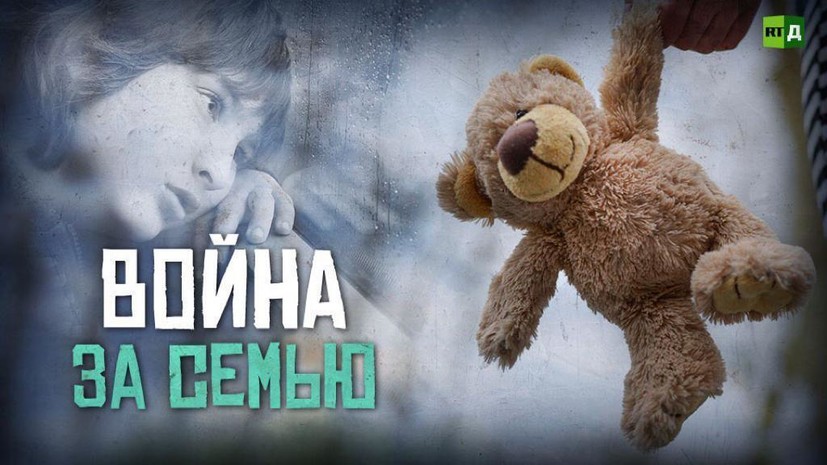The heroes of the RTD film talk about the problems they encountered when they came into the view of the guardianship authorities. Often the reason for the removal of children is simply the poverty of their parents - if the custody considers that the living conditions of the child do not meet the established "standards", the family is more likely to be separated than help her to her feet.
About this situation told Natalia Shekhlovitskaya Nizhny Novgorod. Guardianship took her three grandchildren from her two days after her daughter, the mother of the seized children, died. The reason was “inadequate sanitary conditions” in the elderly woman’s house. She was required to immediately make repairs and replace furniture and appliances in the apartment, but Shekhlovitskaya, receiving a pension of 10 thousand rubles, could not immediately fulfill these conditions.
The eldest children tried to give custody to their father, who had long since abandoned his family and abused his ex-wife. The youngest child was found at all by foster parents from Moscow - without waiting for a court decision, which eventually allowed the grandmother of the children to become their guardian. If the new family had time to pick up the child, Shekhlovitskaya, most likely, would not have seen her grandson.
In practice, it often turns out that even if the child was taken out of the family for far-fetched reasons, the parents are powerless in front of the juvenile machine - they can only restore their rights through the courts, and this is months or even years of separation from the children.
In a similar situation, there was another heroine of the film, Tatyana Bolshakova from Yalta. Her disabled daughter was taken away when money problems started in the family, and her mother turned to social services for help. As a result, these same social services have ensured that they separated their mother and girl. One of the reasons, according to custody, was the child’s excessive thinness, although low weight was a consequence of a congenital disease.
The trial of Tatyana’s restriction of parental rights was held in absentia and without her knowledge, and then the girl was simply taken away from her mother. The child was kept in the hospital for a month before Bolshakova managed to return her daughter home through court. All this time she was not even allowed to see the girl. Now Tatyana wants to get punishment for officials who took her daughter from her - but there is no special article in the Russian legislation for guardianship agencies that arrange such “juvenile repressions”.
The creators of the documentary also talked about the shortcomings of the Russian juvenile system with human rights activists and activists. In their opinion, the main problem is the reluctance of the guardianship authorities to properly understand each specific situation and provide assistance to “dysfunctional” families. Often, guardianship officers immediately resort to the most radical measures: they take the children away and then distribute them to foster parents.
“In the Russian Family Code, fifty-one articles are about the separation of children and parents. Nine articles govern the deprivation of parental rights, restrictions on parental rights, removal of children from the family, and so on. And the forty-one article - a whole section - is called: “the upbringing of children left without parental care”, it describes in detail how the guardianship authorities should behave when the family is already divided. Until 2013, there was not a word about helping the family, ”said human rights activist Boris Altshuler.
Several plots of the film were shot in the Perm Territory, which human rights activists called the "juvenile training ground" of Russia. In the region there are whole “guardian villages” where eight to nine foster children are brought up in each family - a consequence of the desire of guardianship staff to reduce the number of pupils in orphanages and shelters. At the same time, children are increasingly being taken from their parents here, and sometimes custody decisions raise many questions.
The RTD film tells, for example, the story of the removal of children from a single father, whose wife left the family; Perm activist, who tried to take away children because of a false denunciation after her protests against the closure of the local railway route; as well as families with limited rights to children due to the fact that there was stove heating in their house.
In recent years, the Russian guardianship system has come from the principle that every child should be brought up in a family - hence the desire to add as many children as possible to the foster families left without parental care. At the same time, they also began to pick up children from native families more often, and it does not always turn out that with new parents the child feels better. An example of this is the numerous cases of child abuse in foster care.
The heroine of the RTD film “War for the Family” Anna Koroleva told her story of living in a foster home: recently, the girl managed to prove that her former guardian Irina Goncharova used violence against her students, while receiving large sums from the state to support them.
Alexei Mazurov, an activist of Parental All-Russian Resistance in the Perm Territory, believes that it is precisely because of the money that the Russian “juvenile car” often acts contrary to the interests of children, taking them from their families and placing them in foster homes.
“ All subjects are interested in moving (children from family to guardianship. - RT ). Everywhere, however, per capita provision - that is, if the child has been in the hospital for some time, then the hospital will then receive funds from the state. We need to understand where these funds are then replenished from - they are replenished from the alimony paid by the parent from whom the child was taken away, ”said Mazurov.
Watch the movie "War for the Family" on the RTD website.

